Giro d'Italia: Aru moves up to second thanks to Cervinia stage win
'I suffered as much as I did on the Mortirolo,' says Astana rider
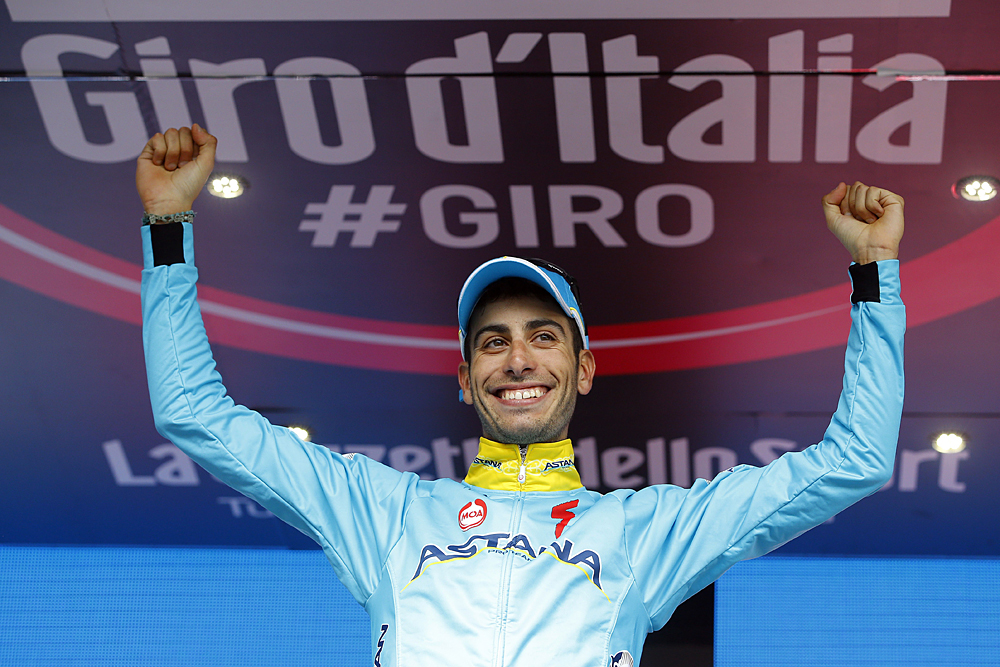
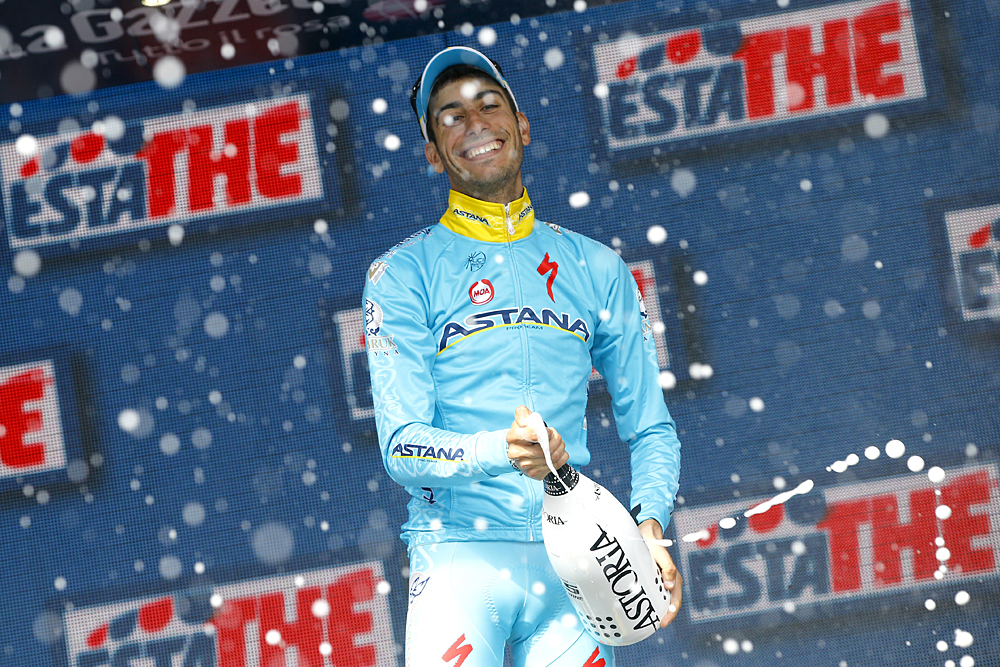
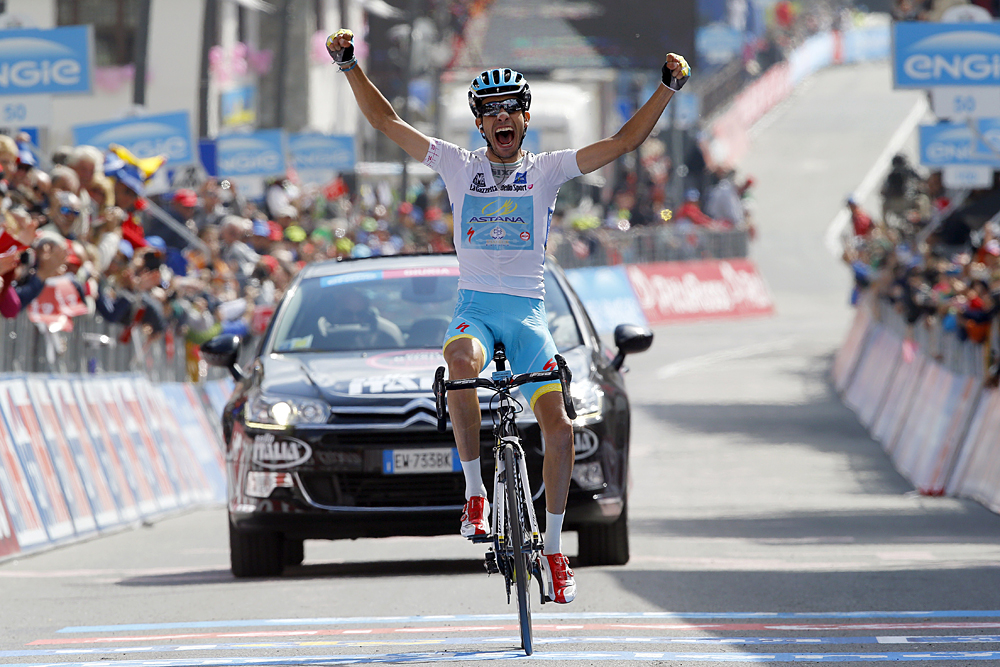
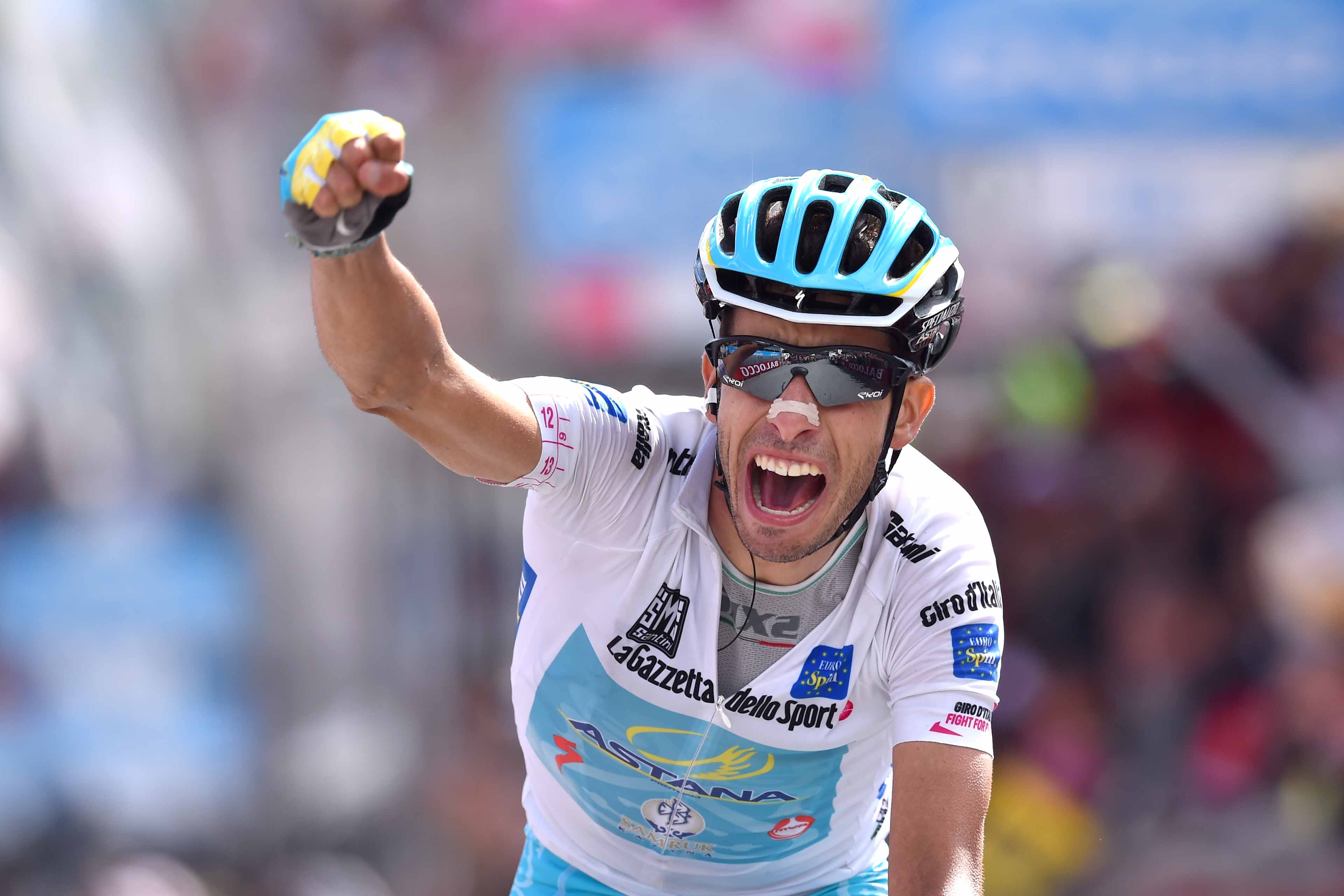
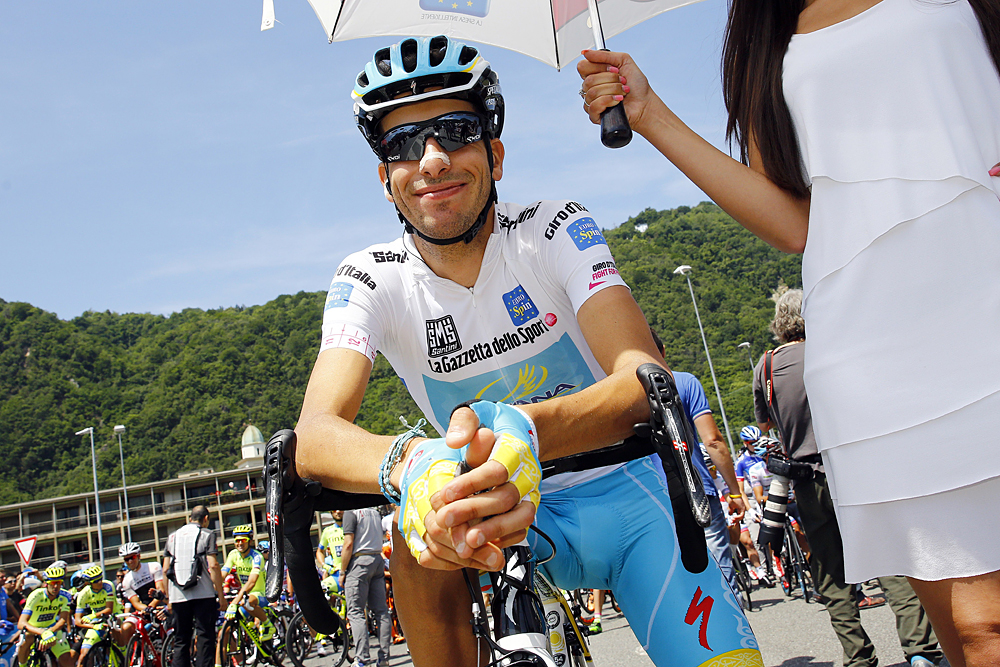
For much of this Giro d’Italia, Fabio Aru has adopted a defensive stance in his dealings with the press, downplaying expectations by prefixing most of his answers with a nervous laugh and the words “Ma sì, dai,” and deftly manoeuvring most interactions to an end with a vague “vedremo” – we’ll see.
It’s remarkable how victory softens inhibitions. After soloing clear to win stage 19 at Cervinia on Friday, moving ahead of Astana teammate Mikel Landa and into second place overall in the process, Aru seemed a man transformed when he settled into his seat for the post-stage press conference. The smile was readier, the shoulders were more relaxed and – by some distance – the answers were considerably longer.
Aru’s victory comes at the end of three weeks of oscillating expectations. After the doubts expressed about him before the race, he raised home hopes with an effervescent first week, but was already beginning to fade by the time he pulled on the maglia rosa on stage 13. In the third week, Aru conceded all hope of overhauling Alberto Contador and was overshadowed by his teammate Landa, but victory at Cervinia puts a very different sheen on his Giro.
“To tell the truth, the pressure doesn’t affect me, it just gives me the strength and the focus to go on and do my work,” Aru said of his three weeks as Italian cycling’s Boy in the Bubble. “I tried to hide it but I went through some bad moments before the Giro but I held on and I have to thank my family and my team.”
It was unclear whether Aru was referring to the reported bout of dysentery that forced him to miss his final preparation race, the Giro del Trentino, or the accusation subsequently levelled against him by Greg Henderson – later retracted – which prompted him to initiate legal proceedings as the Giro began. All spring, meanwhile, his Astana team’s very place in the WorldTour remained in doubt due to the spate of doping cases in the set-up last season.
“I prepared well for this Giro, but I had some problems. But this stage win shows that I could handle it and it repays the faith of my team, who believed in me all winter,” said Aru, whose general manager Alexandre Vinokourov was on hand in Sestriere to witness the umpteenth show of startling collective force from Astana at this race.
“This victory has a special taste because it’s really unexpected. I haven’t been good in the last few days, but I’ve stuck in there.”
Get The Leadout Newsletter
The latest race content, interviews, features, reviews and expert buying guides, direct to your inbox!
Mortirolo
Indeed, 72 hours ago, Aru had the bearing of a man about to slip off the podium altogether when he floundered on the slopes of the Mortirolo and dropped to third overall, while on Monte Ologno on Thursday, he was still scarcely treading water. It was something of a surprise, then, to see him bound clear with such confident strokes some seven kilometres from the summit of Cervinia.
“I was very tired in the days since the Mortirolo,” Aru said. “I’ve slept a lot, had longer massages, I’ve gone to bed as early as possible… But you still wake up already tired, destroyed. But once you start the stage, you start to think you’re getting better. When you’re feeling bad, you give yourself intermediate goals, you tick off every 50 kilometres and so on.”
When Aru climbed out of the saddle and set off in pursuit of Ryder Hesjedal (Cannondale-Garmin), it was notable that Contador made no attempt to close the gap. The Spaniard preferred instead simply to mark Landa and roll home in sixth place on the stage, 1:18 down on Aru.
“You’d have to ask Alberto about that, I just tried to make a big attack,” Aru said. “When I got across to Hesjedal, I sat on the wheel for a bit, then I attacked him again and it was basically a mountain time trial from there.”
The road to Cervinia was familiar to Aru thanks to his two victories at the prestigious Giro della Val d’Aosta as an amateur. Despite its length – some 22 kilometres – and the stirring backdrop provided by the Matterhorn, the gradient is a relatively gentle one, at least in comparison to the Mortirolo, where Aru had struggled so clearly on stage 16.
“The suffering today in the last seven kilometres was equal to the suffering on the last 40 kilometres of the Mortirolo stage,” Aru said. “I had to make the same effort here but I managed it better. This is a sport of suffering. It’s easy to win when you’re good, but much less so when you’re suffering. Nothing has come ever easy to me, but I’ve hung in there.”
Despite his labours in the second and third weeks, Aru is now on track to surpass his achievements at last year’s Giro, as he approaches Saturday’s stage over the Colle delle Finestre to Sestriere with a buffer of 38 seconds over his teammate Landa. He downplayed the idea of any internal strife.
“There’ve never been hierarchies on this team,” he said. “Mikel’s very strong and he deserved his two stage wins. He waited for me on the Mortirolo, and I actually gave him the green light to go away and ride for himself because I wasn’t feeling good. The team never abandoned me, and in the end I’m paid to be a rider and give my best.”
To subscribe to the Cyclingnews video channel please click here.

Barry Ryan was Head of Features at Cyclingnews. He has covered professional cycling since 2010, reporting from the Tour de France, Giro d’Italia and events from Argentina to Japan. His writing has appeared in The Independent, Procycling and Cycling Plus. He is the author of The Ascent: Sean Kelly, Stephen Roche and the Rise of Irish Cycling’s Golden Generation, published by Gill Books.